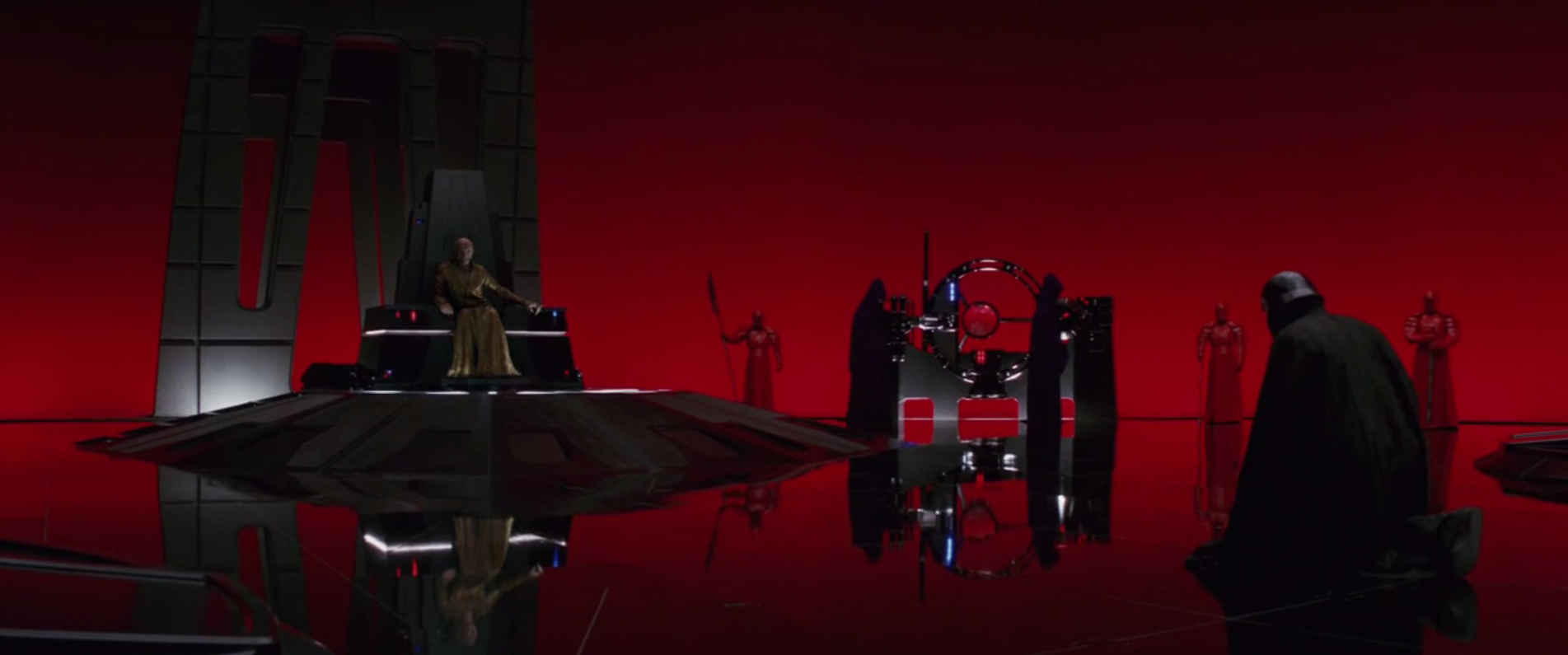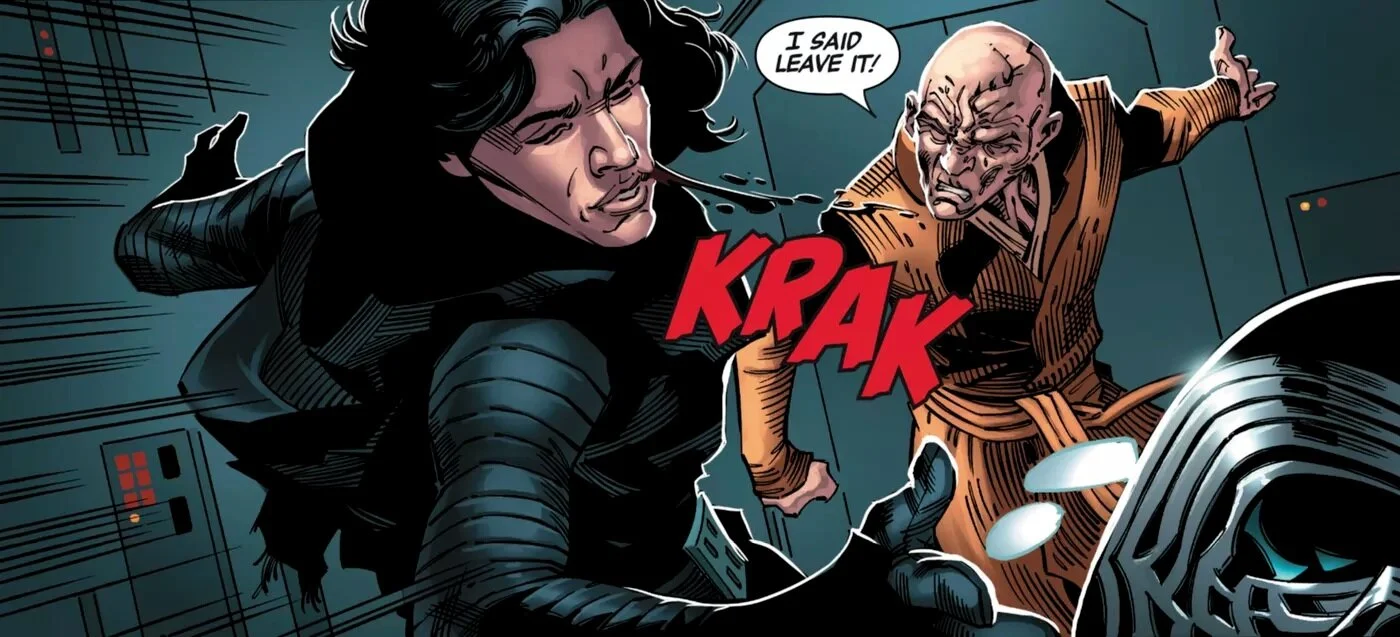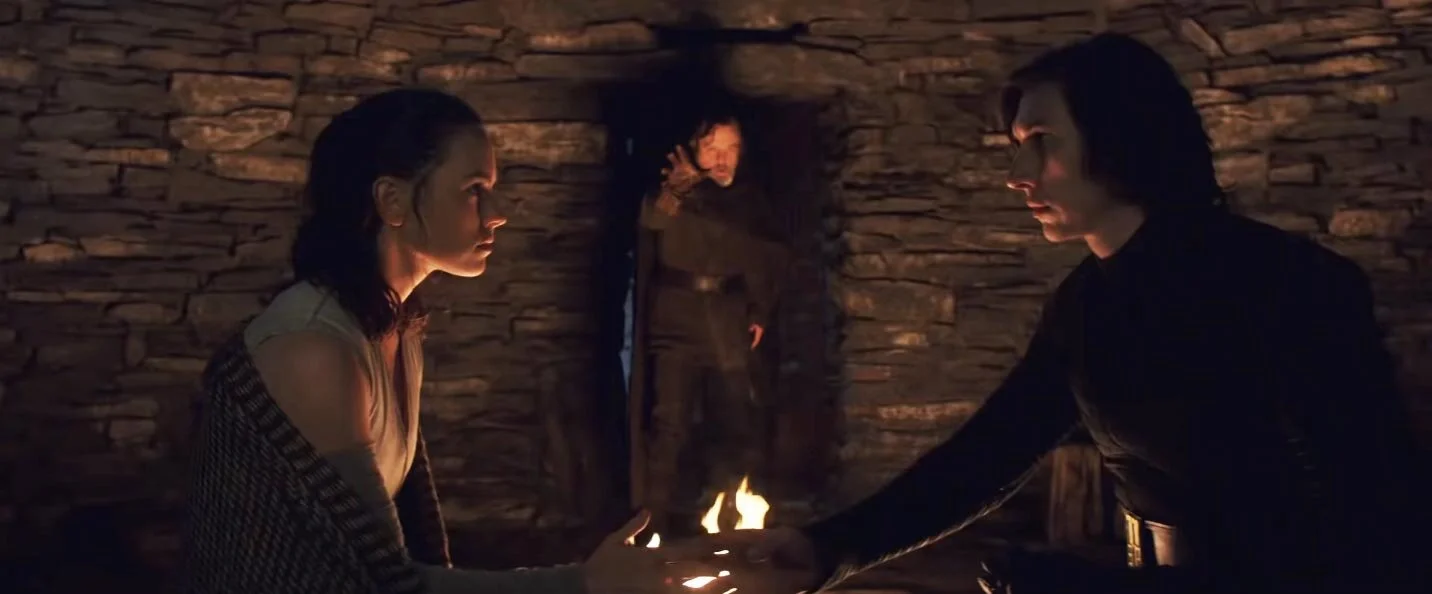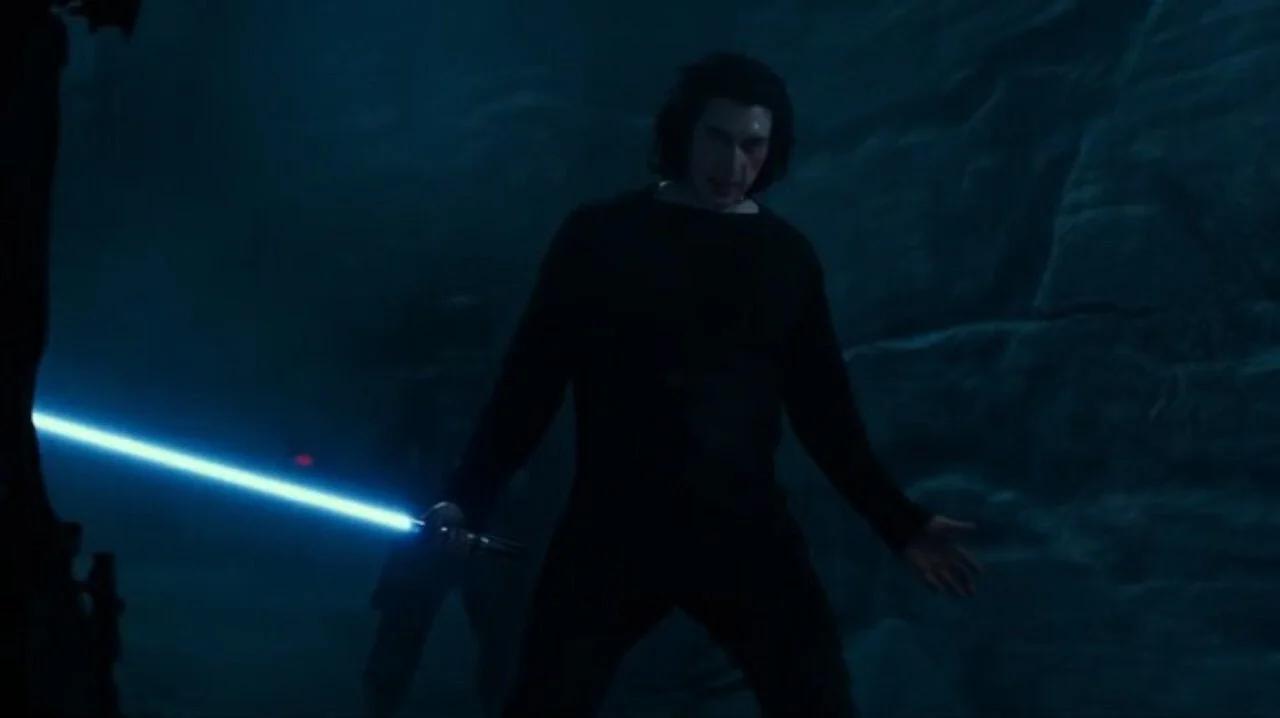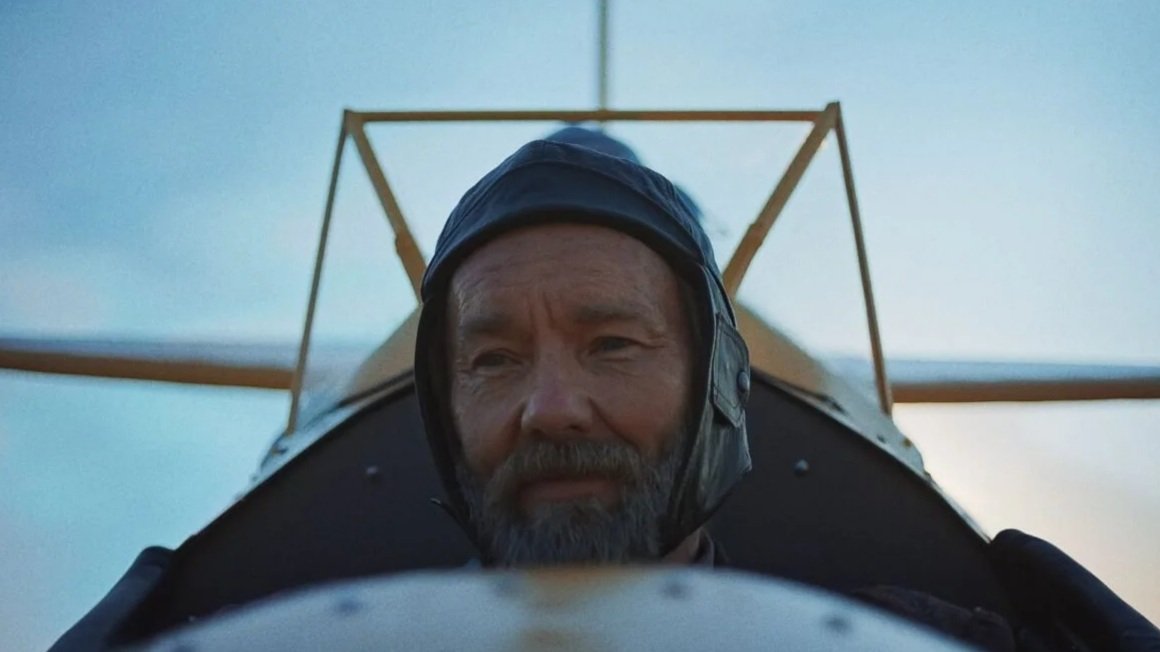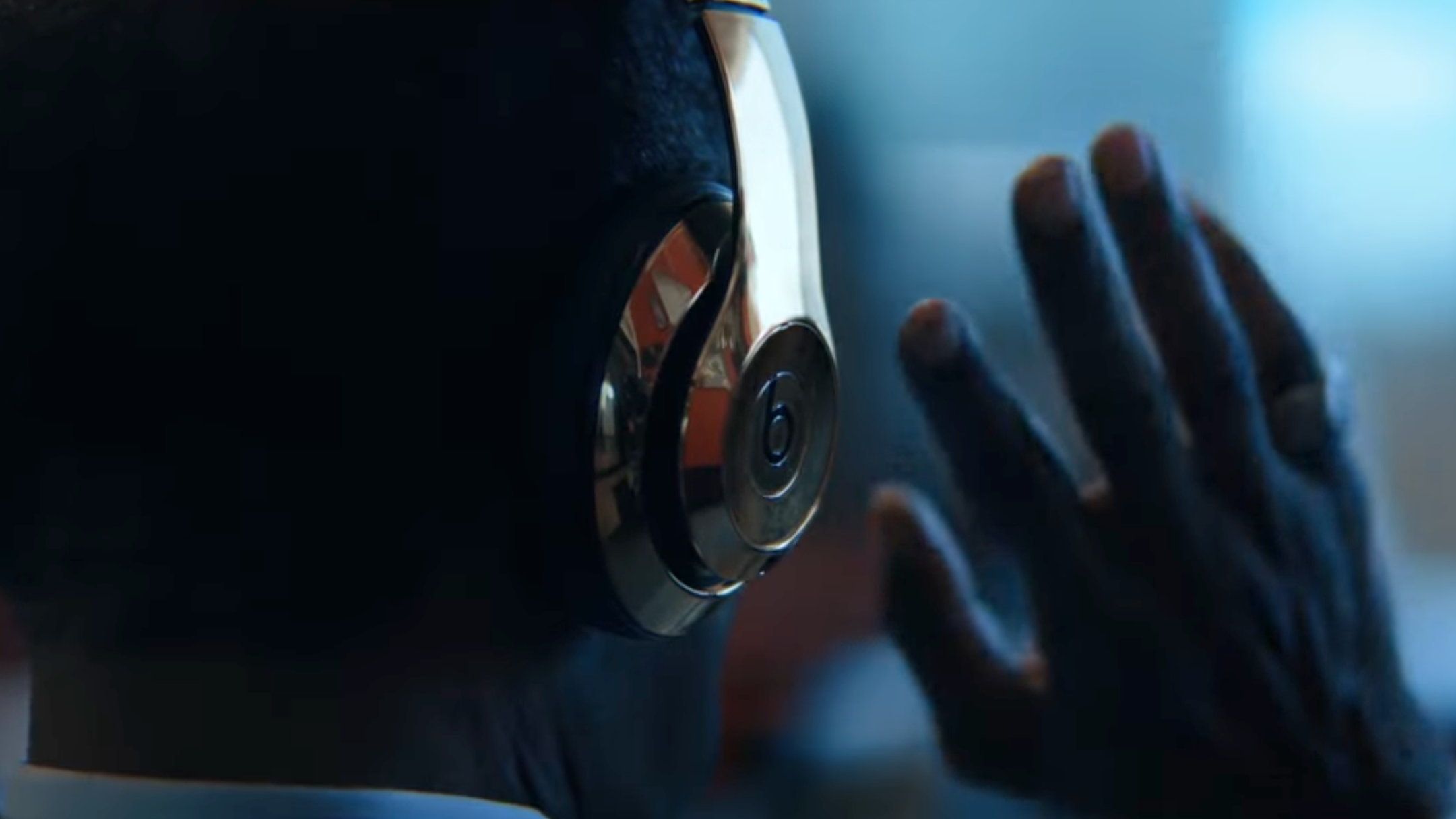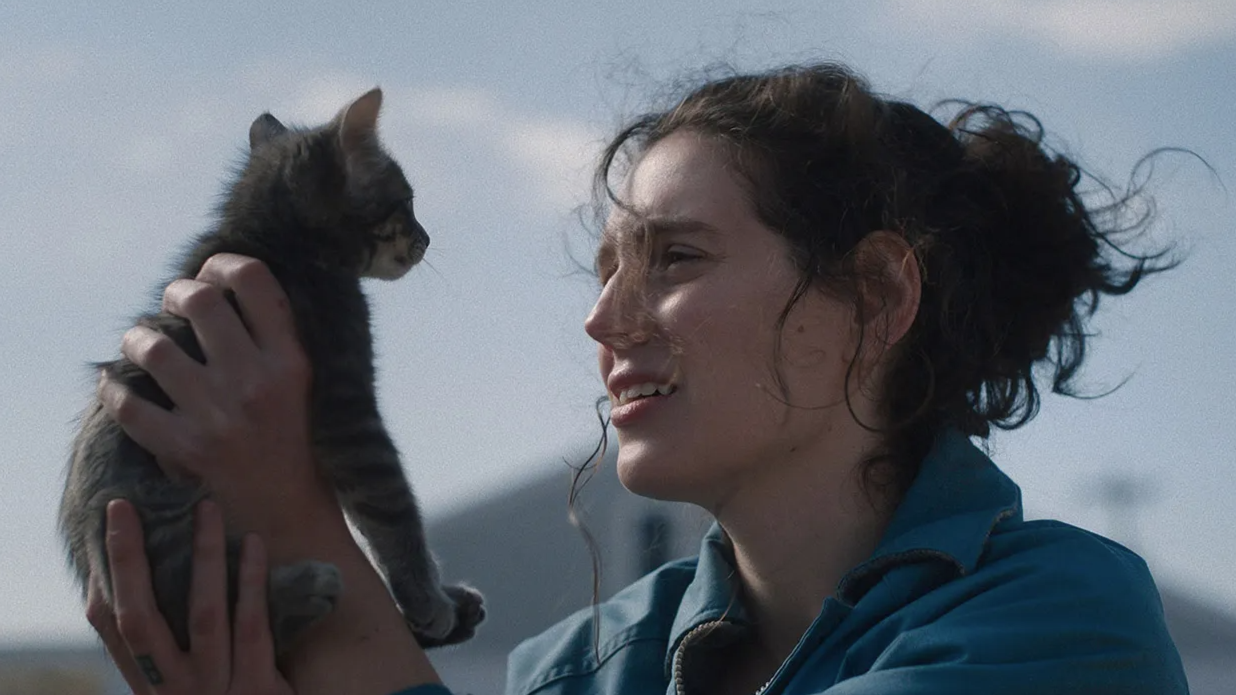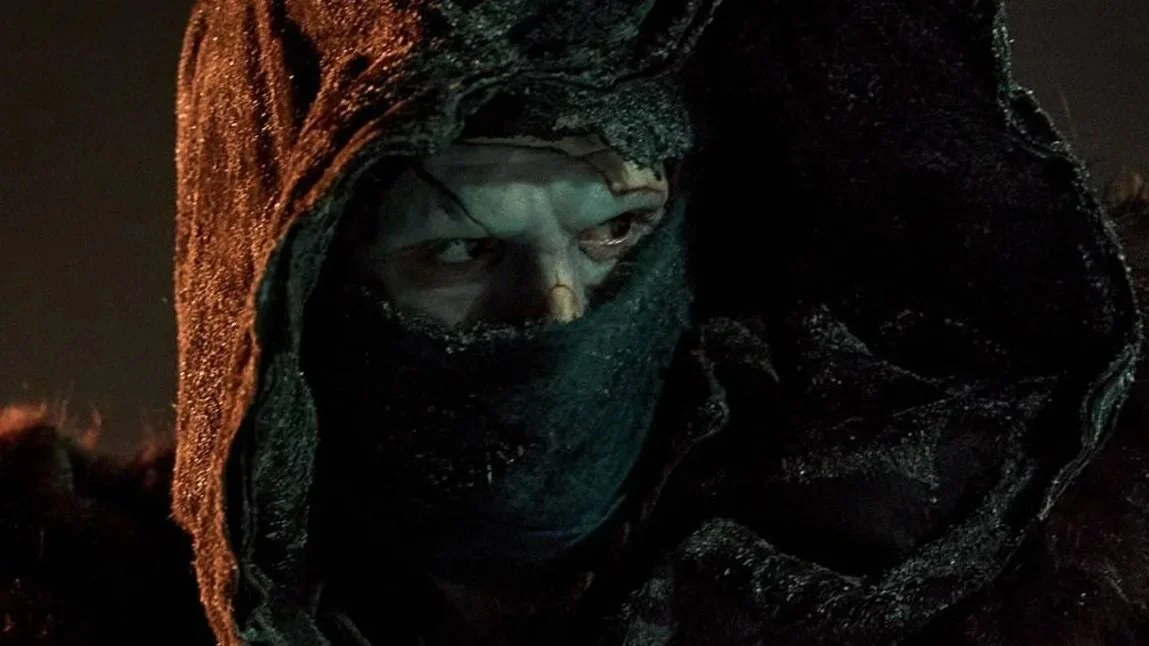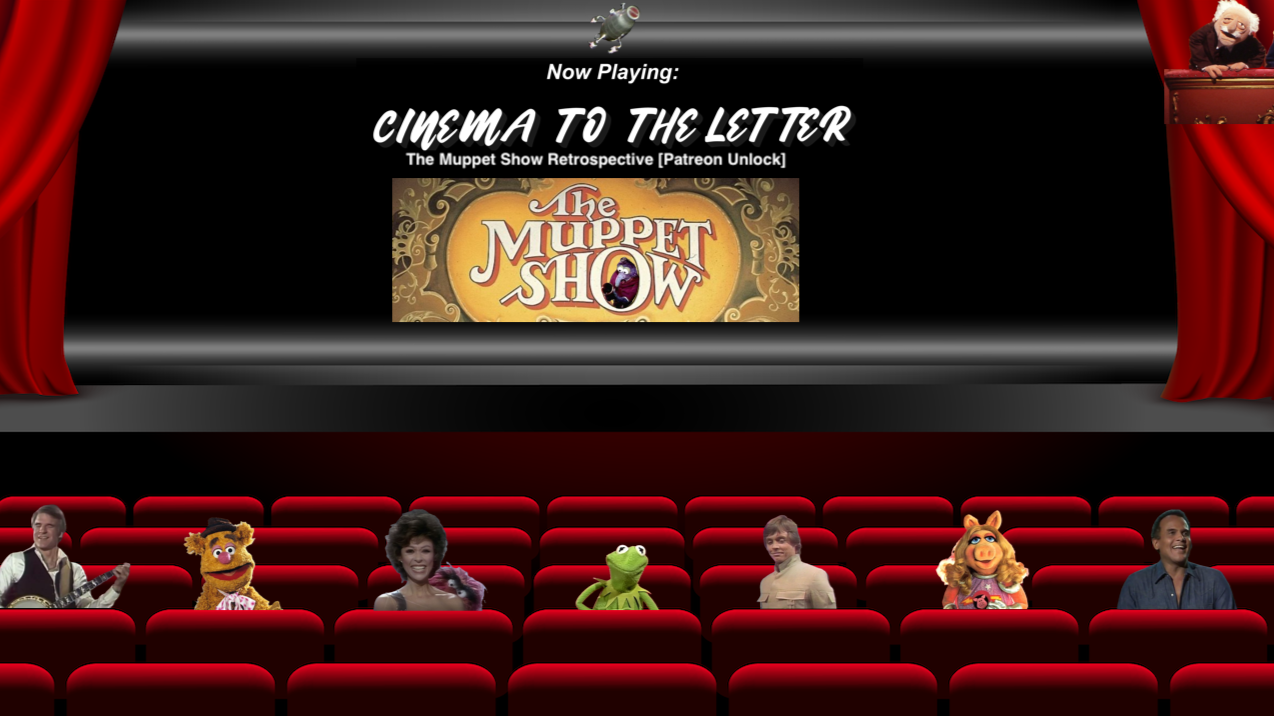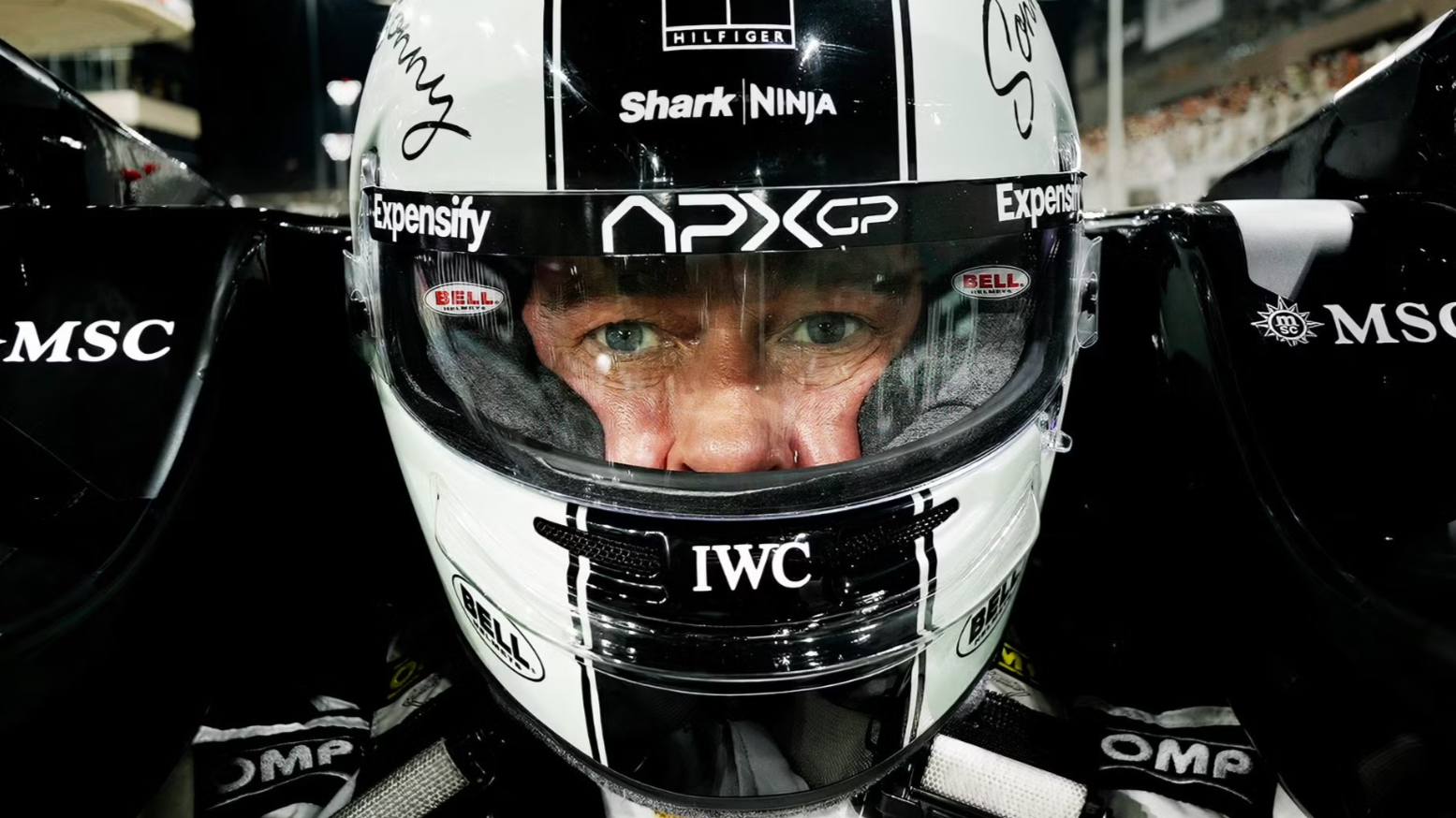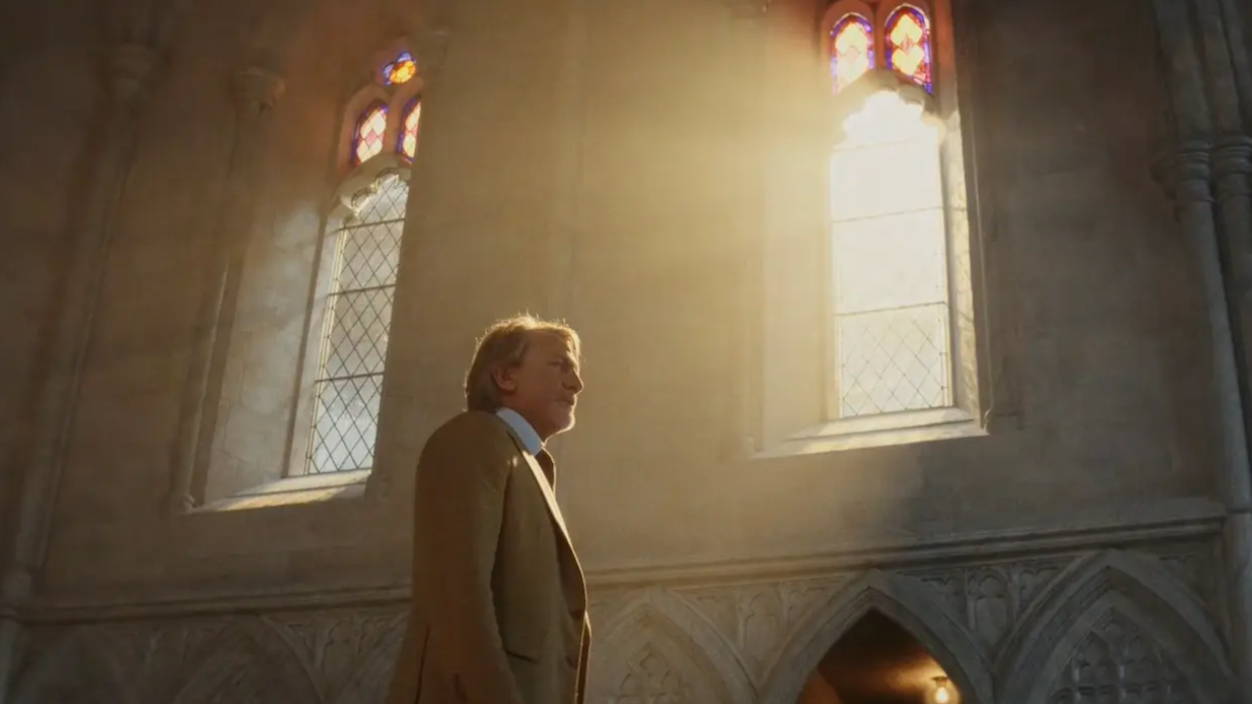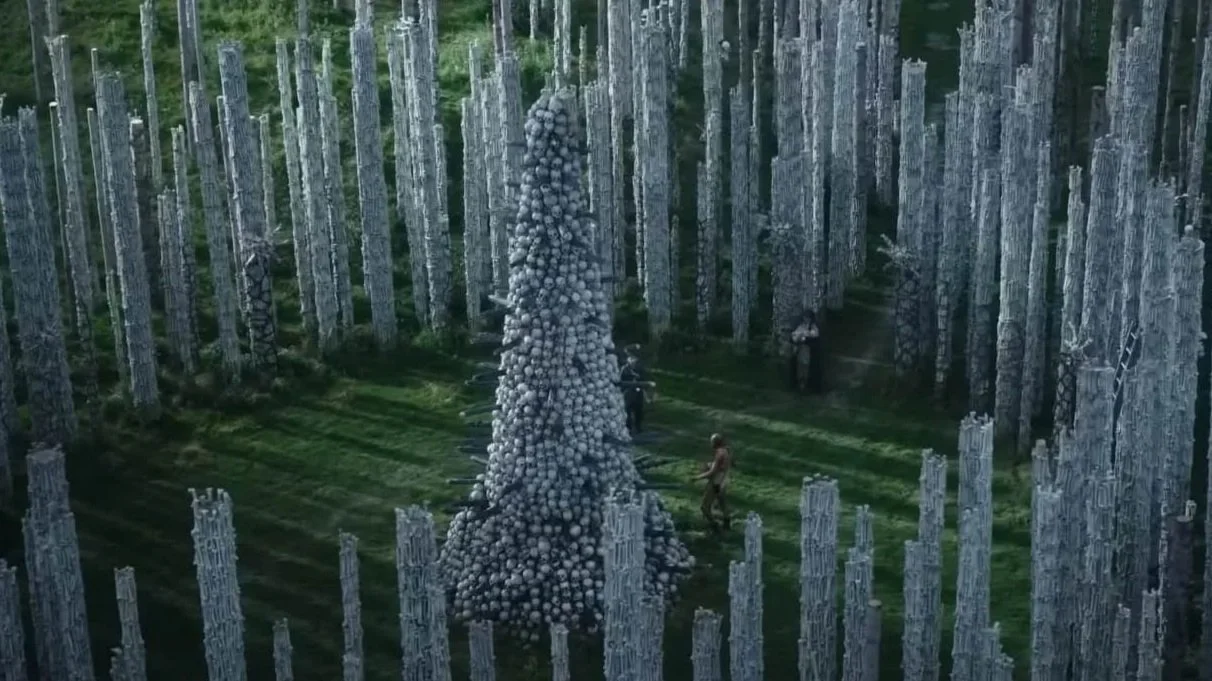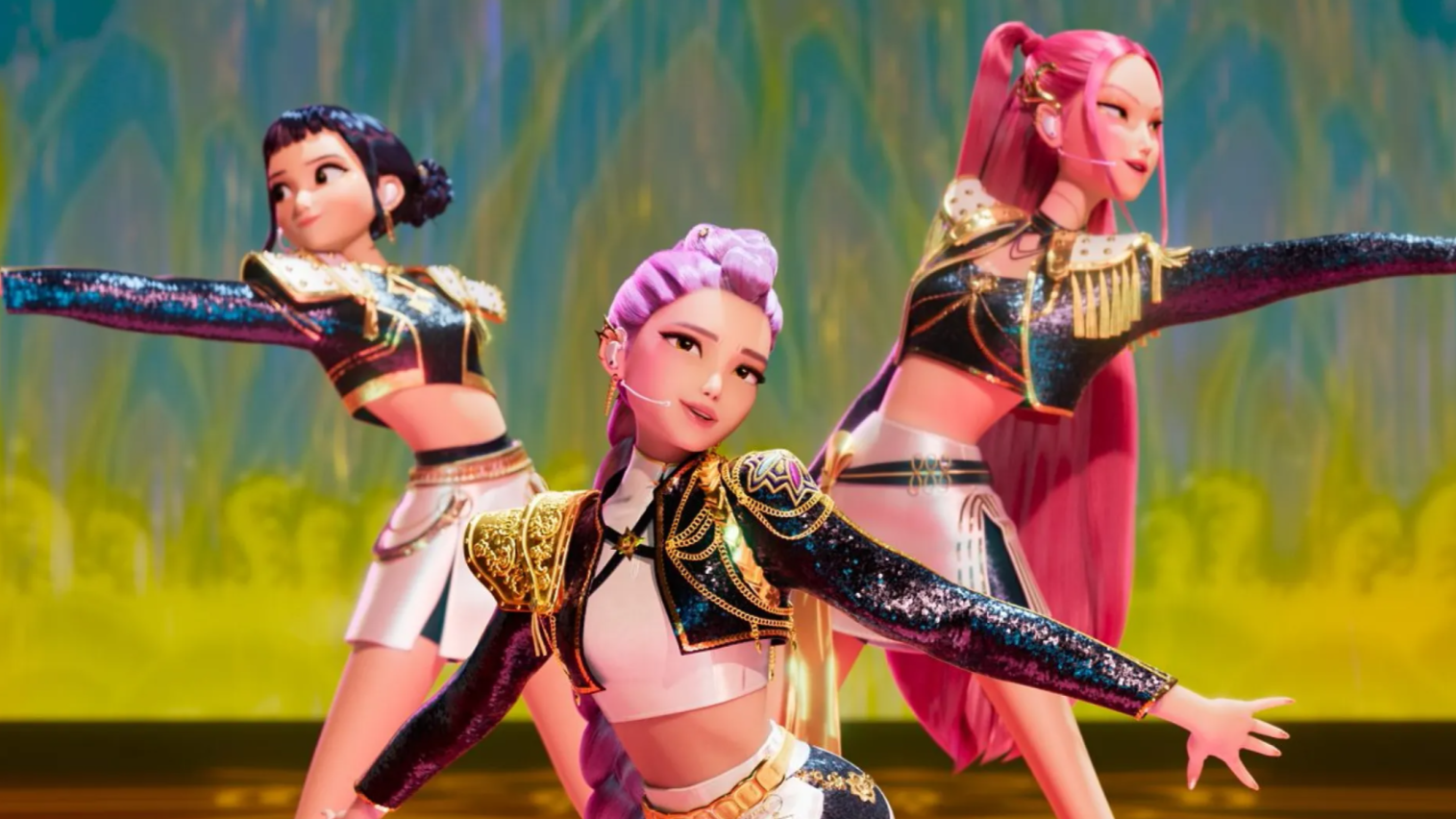"I Feel It Again. The Pull to the Light": A Tribute to Ben Solo
It’s a really difficult thing to sit down and put into words why something or someone means so much to you. When you can’t quite quantify just when or why this thing became such an irreplaceable part of your life, it’s nearly impossible to do so in a way that feels so permanent. It’s taken more time and anxiety to work on this than anything else I’ve ever done for Talk Film Society. And maybe that’s due to the very venomous discourse surrounding Star Wars. Currently, the fan base is split into factions, all of which are screaming at each other about The Rise of Skywalker, a film on which it is seemingly impossible to have a relatively neutral take. There’s a certain fear that comes with publishing or creating anything related to Star Wars right now, because whatever stance you take, someone’s gonna come for your throat on it. Especially if it’s about the sequel trilogy.
So, I get it. We’re all sick of talking about Star Wars. But allow me one more not-so-brief conversation, because I think we really need to talk more about Ben Solo aka Kylo Ren, a character that’s becoming more and more unfairly maligned the further we get from him.
And to an extent, I get that. I did not have an immediate love for this character. If you’ve listened to the sequel trilogy episodes of Igniting the Spark, my Star Wars podcast here at Talk Film Society, you know some of the backstory. When I first watched The Force Awakens, I fell in love with the main trio of Rey, Finn, and Poe, as intended. Kylo Ren was…there. An interesting villain, to be sure, being played impeccably by Adam Driver, but without a lot of time to drive home just how important this character was. Well, symbolically important, that is.
His importance to the story and the greater Star Wars universe is all there. The last Skywalker, corrupted by the dark side. Tempted to the light, the way the grandfather he admired was called to the dark. The prince of Alderaan, aligning himself with those who once destroyed his birthright. A murderer who kills his own father; all, seemingly, in the name of more power. Even before getting into the emotional core of Ben, it’s a terribly tragic story of a boy who betrays every single thing in his life, and at the end of The Force Awakens, we’re still not really sure just why he did all these awful things, other than the few appearances by his dark mentor, Snoke.
The problem with most of the discourse currently surrounding Kylo Ren is that it’s so easy to get lost in this part of the character: he’s done a lot of terrible things. After all, the very first thing we see him do onscreen, in The Force Awakens, is kill a defenseless old man and order the slaughter of an entire village of innocents. Later, he’s complicit in Hux’s genocidal destruction of multiple planets, even if he weakly attempts to argue against it and prevent it. And, of course, he kills his father, Han Solo, in what immediately became a symbolically divisive moment that accidentally foreshadowed the attitudes surrounding this entire trilogy. Han is an iconic, beloved character, so this moment made many viewers instantly and definitely decide where Kylo’s arc needed to go from there.
The violence and killing is a crucial part of this character, of course, but there’s something much more interesting going on beneath the surface. The cause of the violence doesn’t line up with the usual depictions of vicious men and toxic masculinity that we see onscreen. Case-in-point, the group of fans that feel the most emotionally attached to Kylo Ren is mostly female. There’s a much deeper reason for that than the innate-but-kinda-bizarre hotness of Adam Driver.
As Kylo Ren is fleshed out into a more human character in The Last Jedi, Rian Johnson filled Ben’s story with beats that connected with parts of the audience in a new way, specifically resonating with many women’s experiences. First off, there’s his relationship with Snoke. A figure that was once just an intimidating, mysterious, larger-than-life hologram also became something much more grounded: a predator and abuser. The Force Awakens gives us glimpses of this when we learn his backstory with Kylo. We can never really be sure just how long Snoke had been grooming Ben when we first meet him as Kylo Ren, but it’s been the vast majority of his short life. It’s heavily hinted that he’s basically never lived a life without this manipulative presence whispering in the back of his mind, slowly corrupting, alienating, and radicalizing him. Add in the extra level of separation that can be easily twisted into being perceived as rejection when his parents send him away to be trained under Luke, and it’s a recipe for disaster.
Snoke’s grooming is all for a very specific purpose, which is to use Ben’s Skywalker legacy and power to his own political advantage. As soon as that boy and his power are under his control, the seemingly kind Snoke quickly changes into something more violent. In multiple comic series since the start of the sequel trilogy, the extent of Snoke’s behavior was made clear. After making Ben believe that he, Snoke, is the only person who loves and understands him, things quickly change into outright abuse when Ben becomes Snoke’s apprentice, and it’s of every imaginable variety: verbal, emotional, and physical. In the Supreme Leader Snoke issue of the Age of Resistance comic series, Snoke disguises his abuse as training, as something that will help Kylo grow. He throws Kylo off a cliff as an exercise, then beats him for wanting to wear his helmet. But Ben is trapped by the decisions he’s made and stays with his master, who’s constantly taking advantage of the trust young Ben put in him after Luke’s betrayal. We also see this onscreen in the way Snoke treats Kylo in The Last Jedi. He throws Kylo with Force lightning, as well as berating, belittling, and insulting him at any given opportunity, especially if Hux is present.
Between Snoke’s cruelty and the weight of the family legacy that sits on his shoulders, there’s a raw vulnerability to this character that’s magnetic. Driver plays the role with what could initially be perceived as the usual male stoicism we’re so used to seeing, but it takes only a moment of looking deeper to see the gaping wound that is Ben Solo. He’s constantly lingering just below the superficial Band-Aid of “Kylo Ren”, a persona that’s just as much of a mask as the black Vader-ripoff helmet he carries. In moments of The Last Jedi, we get these glimpses of Ben through the cracking façade when Rey calls him by name or when he senses the presence of his mother.
And what a beautiful note that brings to this character. He’s been constantly betrayed by the men in his life: Snoke, Hux, and Luke. His father is the only exception but, unfortunately, he’s the first man Kylo forces to pay the price. It’s the women of Kylo’s life who see that he still has the capacity for goodness deep inside, below all the defenses he’s been building. Rey’s constantly fighting to pull him back toward the light, and if Carrie Fisher had not passed, this sequel trilogy was clearly hurtling to a confrontation between Kylo and Leia that would have resulted in her saving her son’s soul.
And, in all fairness, that is what Abrams and Terrio are attempting to give this character in The Rise of Skywalker. However, the quality of the writing being so subpar when directly contrasted with Johnson’s script and Driver’s next-level performing is what ultimately ruins the potential of this storyline. It’s not the absence of Carrie, as Terrio so callously insinuated in a recent interview. If we had gotten to see and know just how deeply Leia still loved her son and how affected by her love Ben would have become, things could have wrapped up as originally intended. As it is, we get that moment with the vision of Han, and it’s one of the strongest scenes of the film. One can argue that the vision of Han may come from Leia’s sacrificial gesture, but not only is this unclear in the storytelling, it undercuts the gender dynamics of Kylo’s emotional arc.
If that was the only part of Kylo Ren’s character that was undercut in The Rise of Skywalker, though, I’d be a (relatively) happy camper! Pretty immediately, this film starts tipping its hand and revealing just how little it cares about Ben. He’s reduced from a fascinating character to a tool to deliver exposition to Rey, who reacts neutrally to every single thing he passes along, whether it’s another piece of fetch quest information or the revelation that she’s a descendent of the most evil being in the galaxy.
Even little details reveal the lack of care. The main trio insists on referring to Kylo as “Ren” throughout the film’s runtime. Ren is the name/title of the previous leader of the Knights, and it became something of a title, like “Darth” is to the Sith. The most baffling part of this writing decision is the fact that Rey does it, too, despite the fact that one of the film’s biggest new ideas, the Force Dyad, revolves around the fact that she has a very complex and intimate relationship with Kylo. In The Last Jedi, she almost exclusively refers to him as Ben, because that’s how she sees him, even in his darkest moments. Kylo and Rey are the only people in each other’s lives with whom they are fully open and honest all the time. But sure, she calls him “Ren” now, even though she would definitely know better. Why not.
Even Kylo’s smashed helmet and love for Darth Vader have to come back, even though the helmet’s destruction was a symbolic beat, deeply connected to Kylo’s mantra about the past in The Last Jedi. Kylo meditates again over Vader’s helmet, a symbol of the legacy he was just trying to reject and escape at the end of the previous film. There’s no real story reason for the helmet to return, just reasons like merchandising and disguising the fact that there are entire chunks of this film, including plot-critical dialogue, where Adam Driver is clearly not the person in the Kylo Ren costume.
It’s an intensely frustrating thing to have every single risk taken with this character instantly thrown out the window. The shafting of this arc means that we don’t really get to see Kylo as Supreme Leader…at all. (It’s kinda unreal that we have to turn to a Saturday Night Live sketch for that instead of the final movie of the trilogy…) There’s no thematic resolution of this character literally becoming a dictator, no important moment of realization where he sees that fascism cannot result in any good, regardless of who is ruling with what intent.
In Abrams’s and Terrio’s script, there’s no sign of the truth of this character: Ben Solo was never after power. Ben was gifted with the power that came with his Skywalker bloodline, always the most powerful amongst Luke’s students. More power wasn’t what Ben needed. Ultimately, Ben ran to Snoke to find a place where he belonged, overwhelmed with his legacy and the betrayal from others in his life. It was a desire for control over his own life and narrative that led him to run away, only to find himself instead on another preordained path, even more alone than before. There’s a lot of focus in Star Wars merch and media on Kylo’s nonexistent quest for power when the fact is so much simpler. He’s just a lonely, broken person, as broken as the crystal inside his lightsaber that splits his blade in three, and that loneliness made him susceptible to Snoke’s manipulation and political radicalization.
In the era of political division in which we live, where young white men are constantly committing terrible acts of murderous violence, Kylo Ren is a remarkably modern villain, though he’s meant to be far more sympathetic in the eyes of the audience than the real-life monsters we see in the news. That’s due to Driver’s performance, which is constantly working against Kylo’s actions to make him someone we can understand and for whom we can still want the best. After all, Kylo Ren accepts the label of “monster” from Rey in a way that suggests a certain sense of self-loathing. Humanizing a character like this is a delicate and kind of radical act, especially doing so in a huge franchise like Star Wars. But Adam Driver pulls it off perfectly, because of course he does. Driver has mentioned that there’s a very personal connection between him and the character, though he’s also made it abundantly clear that we’ll never know just what the nature of it is. Frankly, that doesn’t matter; its presence in the performance is enough. It makes a character who should be impossible to crack the most moving and empathetic in the sequel trilogy, and maybe in the entire Skywalker saga.
And that’s all part of what makes the ending of The Rise of Skywalker so, so upsetting. This is a character within which many found it impossible not to see some part of themselves. Yes, Ben makes some awful, terrible decisions under the duress of years of grooming and brutality against him, but he’s also the last Skywalker, Solo, and Organa; symbols of hope and rebellion throughout both the galaxy of Star Wars and in our own culture. To the audience, he symbolized a path out of radicalization to some, a way forward from abuse for others.
While it may be hard for other groups within the fanbase to reconcile the idea of redemption through life for someone who was once a murderer, redemption through sacrificial death is something we’ve already seen in Star Wars. Instead of having a reverse of Vader’s arc as Abrams originally pitched to Driver, Kylo Ren just becomes Vader 2: Electric Boogaloo, and it just doesn’t make sense for a very different character. However, unlike Vader, Ben doesn’t get to defend what matters to him and enact any form of justice on his abuser. That abuser just lifts him up and throws him down a pit as vengeance for what Vader once did, and then falls to Rey alone, dying for no reason other than creating a route to Ben’s death.
Killing off the last Skywalker (Ben) is a move that takes away the wrong moral from The Last Jedi: “Let the past die. Kill it, if you have to.” Well, they didn’t have to. That film is truly about embracing the mistakes and errors of the past and learning from them to make the future better. What better way could you complete that arc than letting Ben live and work to fix his wrongs? The disappointment in Ben’s death comes from the quashing of hope, from telling people who identify with Ben’s victimhood that the only way to fix anything they may have broken is...death. After all, Skywalker doesn’t rise; he falls and dies. Yes, the film tries to revive the family line at the end, but Rey Skywalker feels lazy and inorganic when Ben is right there. The Skywalkers, Organas, and Solos die with Ben, a horrifying omen when you also recall that this film didn’t actually end the war. The First Order still exists elsewhere in the galaxy. Nothing is resolved, but the Skywalkers are gone.
Of course, Star Wars is a universe of amazing potential, with so many elements built into this galaxy and the Force that can fix any number of wrongs. Ben could be in the World Between Worlds. Ben could be within Rey, due to their dyad connection. But, neither of these concepts are established at the end of what will be the last of the Skywalker saga films for the foreseeable future. There’s no Force ghost of Ben. There’s no sign that Rey is even remotely emotionally affected by Ben’s death, even though this film establishes that they are canonically soulmates.
But you know what? Whatever. The fact of the matter is that this character and everything he represented aren’t negated by a bad ending. Yes, “somehow, Palpatine returned”, and in doing so, he instantly destroys the preceding storyline with Snokes being crammed, Barrel-of-Monkeys-style, into bacta tanks on Exegol. But, does it take away the meaning that can be found in the story as it existed before? No; in The Last Jedi, Ben still kills his abuser with his grandfather’s light side lightsaber, even if he doesn’t do the same in The Rise of Skywalker. That moment still has an unbelievable amount of power and weight to it, no matter how many times you’ve seen it, and that’s important. The impact of that story still matters, and so does Ben. The value of art, even super commercialized art like Star Wars, is in the parts that are special and meaningful to those who consume it, and that will never get erased, even if the next work of art is, I dunno, actively trying to undo most of what’s special and meaningful in the previous one.
So, while I’d really have preferred a final film about balance between light and dark and an ending that forced a Star Wars villain to actually face the consequences of his decisions and try to fix things...it’s fine. Ben means something unique to me. He connected with a lot of people, which is often a hard ask of characters in franchise films these days. While it’s heartbreaking to have that feeling be so disrespected by the people in charge of him, it really doesn’t matter. That initial feeling can’t be taken away. I’m grateful for this character, his potential, and to have had two great movies with him. As for the last one...well, coming to terms with a rougher Star Wars movie is an experience we all slowly had over the last twenty years with the prequel films. We’re having it again now, and I’m sure it’s one we’ll have again in the future. I’ll always love and care about Star Wars, though probably never quite as much as I did Ben Solo.


